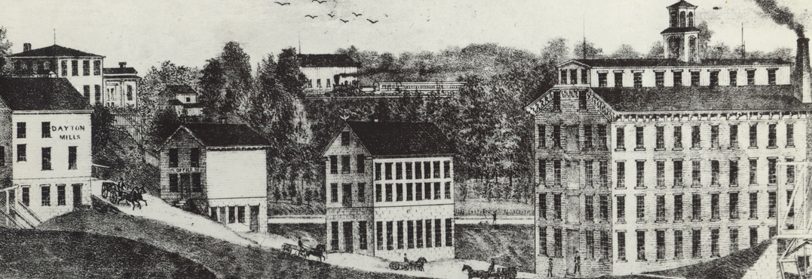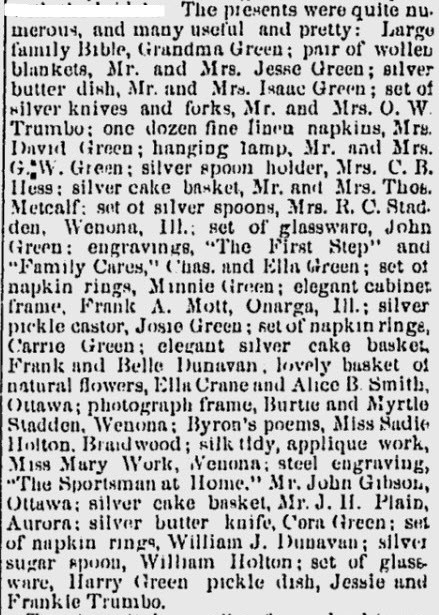
Rural Happenings
Dayton, March 13. – We derive considerable enjoyment here from reading the correspondence from neighboring towns, and have always thought it an interesting part of the county newspaper; and such items as may in our humble judgment be of interest to your readers, we will try to send from here from time to time.
The ice has moved out of the river. Boating will soon be all the “rage.” The river is slowly falling and will soon be fordable. This beautiful spring weather seems such a relief from the cold, cold winter. Roads are getting quite dry.
The Literary is in good running order and having good success. The exercises show care in their preparation and talent in their delivery. The library of the society, containing over a hundred volumes of choice reading, is a great benefit to the town. Much interest is taken in it and beneficial results we have no doubt will proceed from its use.
Harry, Jos., and James Green arrived home on the 1st from Aurora, where they have been attending school during the winter. The boys look fine. “Hash” seems to agree with them.
Rev. Sophie Gibb preaches in this place every two weeks. Her next appointment is Sunday evening, March 16.
Rev. G. Barnes, Congregational minister at Ottawa, delivered a discourse here last Thursday evening. He has a regular appointment once in four weeks.
Our school ma’am, Miss Frank Mott, will give an exhibition Saturday evening, March 22. Miss M. we understand, closes her labors here with the winter term. She has taught our school quite successfully during her sojourn here of about three years, and now feels she needs a rest from her labors. Mr. Chas. K. Howard will teach the summer school.
A number of our young folks visited your city Tuesday evening to witness the performance of “Fanchon.” They all seemed well pleased, and especially spoke highly of Miss Kate Smith’s acting.
The social party at the hall week before last was quite an enjoyable affair. The young folks seem to have gone with the intention of having a good time, and we think they were not disappointed. Another in the near future is talked of. Prof. Sweet, who furnishes the music, says he is the happiest man in Plano. (N. B. It’s a boy.)
The Literary at their last meeting appointed a committee to make arrangements for an entertainment the proceeds of which will be devoted to the purchase of an organ. The temperance and moral drama “Three Glasses a Day, or The Broken Home,” is in rehearsal.
Mr. Basil Green has the contract of filling in the deep ravine south of town.
By the great firing of guns and general confusion taking place at the time of writing, we should judge a battle was taking place at Wedron. A “chivaree,” we suppose.
“Fishing” days are not far off. Oc.1
- The Ottawa Free Trader, March 15, 1879, p. 8, col. 2















